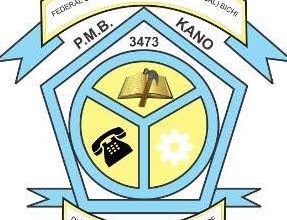List Of Universities That Has Lowest Cut-off Mark For Geophysics
List Of Universities That Has Lowest Cut-off Mark For Geophysics: Are you trying to find the list of Nigerian universities with the lowest cut-off mark required to get admitted to the Geophysics programs? Read on to know Nigeria Universities with the lowest cut-off mark.
If you want to pursue a career in Geophysics but are unsure about the most recent Jamb cut-off mark for a course like Geophysics. Here is a list of Nigerian institutions that have cut-off mark that we have verified; it is the lowest of all the universities in Nigeria that provide Geophysics programs.
Top 5 Universities With Low Cut-Off Marks for Geophysics

1. University of Lagos
The University of Lagos is one of the top universities in Nigeria with a low cut-off mark for Geophysics. To study Geophysics at UNILAG, you need a minimum cut-off score of 200 in UTME and 50 in POST UTME. UNILAG is located in Lagos State, with world-class lecturers and educational facilities for Geophysics students.
2. University of Ibadan
The University of Ibadan is Nigeria’s premier university and ranks high on the list of universities with low cut-off marks for Geophysics. The minimum cut-off mark for Geophysics at UI is 200 in UTME and 50 in POST UTME. UI provides students with opportunities for internships, field trips, and exchange programs to gain practical experience.
3. Ahmadu Bello University
Ahmadu Bello University is a leading university in Northern Nigeria with a low cut-off mark for Geophysics. The minimum cut-off score for Geophysics at ABU is 180 in UTME and 40 in POST UTME. ABU offers Geophysics students opportunities to participate in research and benefit from numerous scholarships and bursaries.
Read also:List Of Universities That Has Lowest Cut-off Mark For Computer Science
4. University of Nigeria Nsukka
The University of Nigeria Nsukka is a prestigious university in Eastern Nigeria with a low cut-off mark for Geophysics. To study Geophysics at UNN, you need a minimum cut-off score of 180 in UTME and 40 in POST UTME. UNN provides students with opportunities for fieldwork experience, internships, and connections with industry professionals.
5. Federal University of Technology Akure
The Federal University of Technology Akure is a reputable university of technology with a low cut-off mark for Geophysics. The minimum cut-off score for Geophysics at FUTA is 180 in UTME and 40 in POST UTME. FUTA offers students opportunities for research, internships, field trips and participation in professional associations to gain valuable experience.
FAQs
To gain admission into any of the universities in Nigeria to study Geophysics, there are some frequently asked questions you need to know:
What is the cut-off mark for Geophysics?
The cut-off mark for Geophysics varies from university to university in Nigeria. Some universities like the University of Lagos, University of Ibadan, Obafemi Awolowo University etc. may have cut-off marks around 200 and above for Geophysics. While some other universities like University of Benin, University of Nigeria Nsukka, University of Calabar etc. may have cut-off marks around 180-199 for the same course.
What are the admission requirements?
The admission requirements for Geophysics are:
- Five O’level credits in Mathematics, Physics, Chemistry, English and any Science subject.
- UTME subject combinations: Mathematics, Physics and Chemistry.
- Meet the required cut-off mark for the chosen university.
- Post UTME screening where applicable.
- Some universities may require a pass in UTME Mathematics and English.
What career prospects are there for Geophysics graduates?
There are many lucrative career opportunities for Geophysics graduates in Nigeria. Some of the jobs you can do with a degree in Geophysics include:
- Geophysical data analyst: Analyzing geophysical data to determine rock properties and locate resources.
- Geophysical engineer: Planning and conducting surveys to explore the Earth’s subsurface.
- Geophysicist: Studying the Earth using gravity, magnetic, electrical, and seismic methods.
- Geological oceanographer: Studying the ocean floor and subsurface geology.
- Petroleum geologist: Exploring and evaluating potential petroleum reservoirs.
- Mining geologist: Locating and evaluating potential mineral deposits.
- Environmental geophysicist: Using geophysical methods to study pollution and environmental problems.
- Geophysics professor: Teaching geophysics at a university or college.
- Geophysics researcher: Conducting research in geophysics and publishing scientific papers.
Read also:List Of Universities That Has Lowest Cut-off Mark For Applied Mathematics with Statistics









